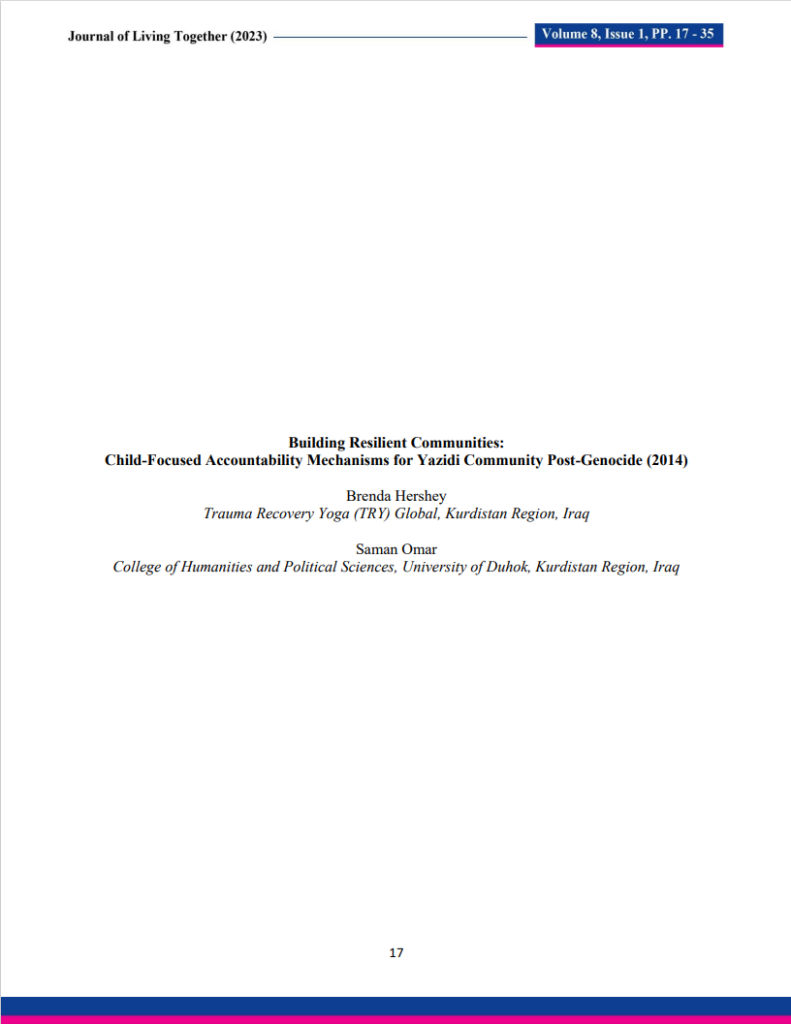Dealing with History and Collective Memory in Conflict Resolution

Dealing with History and Collective Memory in Conflict Resolution on ICERM Radio aired on Saturday, June 25, 2016 @ 2 PM Eastern Time (New York).

The interview/discussion focuses on “how to deal with history and collective memory in conflict resolution.”
After the experience of a horrific or traumatic event like the “four coordinated terrorist attacks that occurred in the United States of America on the morning of September 11, 2001 which killed nearly 3,000 people from 93 nations and left thousands of people wounded,” according to the 9/11 memorial website; or the 1994 Rwandan genocide where an estimated eight hundred thousand to one million Tutsis and moderate Hutus were killed by extremist Hutus within a period of one hundred days, in addition to an estimated one hundred thousand to two hundred and fifty thousand women who were raped during these three months of genocide, as well as thousands of people who were wounded, and millions of refugees were forced to flee, plus unquantifiable loss of property and psychological trauma and health crises according to the United Nations Department of Public Information, Outreach Program on the Rwandan Genocide and the United Nations; or the 1966-1970 massacres of Biafrans in Nigeria before and during the Nigeria-Biafra War, a three-year bloody war that sent more than one million people to their graves, in addition to millions of civilians, including children and women, who died from starvation during the war; after the occurrence of traumatic events like these, policy makers usually decide whether or not to tell and transmit the story about what happened.
In the case of 9/11, there is a consensus that 9/11 should be taught in U.S. classrooms. But the question that comes to mind is: What narrative or story about what happened is being transmitted to students? And how is this narrative taught in U.S. schools?
In the case of the Rwandan genocide, the post-genocide education policy of the Rwandan government led by Paul Kagame seeks to “abolish the classification of learners and teachers by Hutu, Tutsi, or Twa affiliation,” according to a UNESCO led report, “Never Again: Educational Reconstruction in Rwanda by Anna Obura. In addition, the Paul Kagame’s government is hesitant to allow the history of the Rwandan Genocide to be taught in schools.
Similarly, many Nigerians who were born after the Nigeria-Biafra War, especially those from the south-eastern part of Nigeria, the Biafran land, have been asking why they were not taught the history of the Nigeria-Biafra War in school? Why was the story about the Nigeria-Biafra War hidden from the public arena, from the school curriculum?
Approaching this topic from a peace education perspective, the interview focuses on the most important themes in Dr. Duckworth’s book, Teaching About Terror: 9/11 and Collective Memory in US Classrooms, and applies the lessons learned to the international context – especially to the post-1994 Rwandan Genocide educational reconstruction, and the Nigerian politics of oblivion regarding the Nigerian Civil War (also known as the Nigeria-Biafra War).
Dr. Duckworth’s teaching and research focus on transforming the social, cultural, political and economic causes of war and violence. She regularly lectures and presents workshops on historical memory, peace education, conflict resolution, and qualitative research methods.
Among her recent publications are Conflict Resolution and the Scholarship of Engagement, and Teaching About Terror: 9/11 and Collective Memory in US Classrooms, which analyzes the narrative today’s students are receiving about 9/11, and the implications of this for global peace and conflict.
Dr. Duckworth is currently the Editor-in-Chief of Peace and Conflict Studies Journal.


